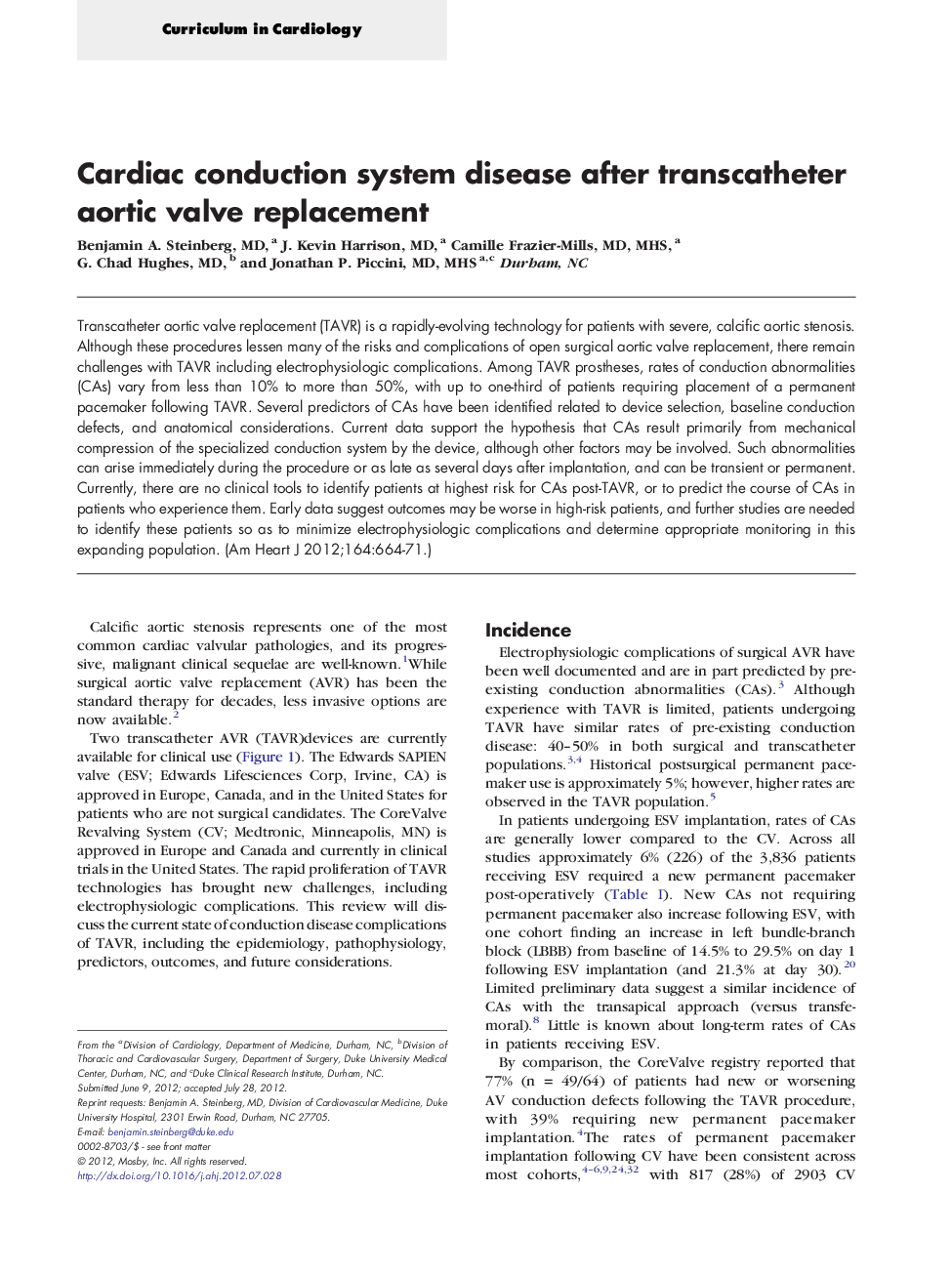| کد مقاله | کد نشریه | سال انتشار | مقاله انگلیسی | نسخه تمام متن |
|---|---|---|---|---|
| 5927885 | 1167751 | 2012 | 8 صفحه PDF | دانلود رایگان |
عنوان انگلیسی مقاله ISI
Cardiac conduction system disease after transcatheter aortic valve replacement
دانلود مقاله + سفارش ترجمه
دانلود مقاله ISI انگلیسی
رایگان برای ایرانیان
موضوعات مرتبط
علوم پزشکی و سلامت
پزشکی و دندانپزشکی
کاردیولوژی و پزشکی قلب و عروق
پیش نمایش صفحه اول مقاله

چکیده انگلیسی
Transcatheter aortic valve replacement (TAVR) is a rapidly-evolving technology for patients with severe, calcific aortic stenosis. Although these procedures lessen many of the risks and complications of open surgical aortic valve replacement, there remain challenges with TAVR including electrophysiologic complications. Among TAVR prostheses, rates of conduction abnormalities (CAs) vary from less than 10% to more than 50%, with up to one-third of patients requiring placement of a permanent pacemaker following TAVR. Several predictors of CAs have been identified related to device selection, baseline conduction defects, and anatomical considerations. Current data support the hypothesis that CAs result primarily from mechanical compression of the specialized conduction system by the device, although other factors may be involved. Such abnormalities can arise immediately during the procedure or as late as several days after implantation, and can be transient or permanent. Currently, there are no clinical tools to identify patients at highest risk for CAs post-TAVR, or to predict the course of CAs in patients who experience them. Early data suggest outcomes may be worse in high-risk patients, and further studies are needed to identify these patients so as to minimize electrophysiologic complications and determine appropriate monitoring in this expanding population.
ناشر
Database: Elsevier - ScienceDirect (ساینس دایرکت)
Journal: American Heart Journal - Volume 164, Issue 5, November 2012, Pages 664-671
Journal: American Heart Journal - Volume 164, Issue 5, November 2012, Pages 664-671
نویسندگان
Benjamin A. MD, J. Kevin MD, Camille MD, MHS, G. Chad MD, Jonathan P. MD, MHS,